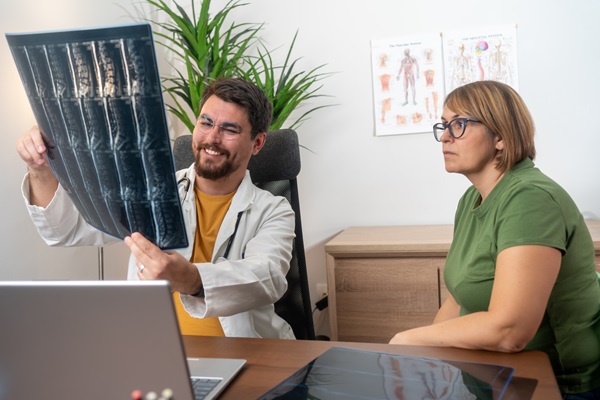When To Consider Consulting a Spine Surgeon

A spine surgeon can help treat and manage a wide range of conditions affecting the spine. Thus, if you have been experiencing back pain or other symptoms that may indicate an issue with the spine, such as foot and leg tingling, it is a good idea to book a consultation. Learn when to consult a spine surgeon and what to expect when meeting with one.
Signs it is time to consult a spine surgeon
Back and neck pain are common. However, there could be an issue with the spine when pain is persistent and accompanied by other symptoms. Here are the most common signs that indicate the need for a consultation with a spine surgeon:
- Chronic pain in the back or neck. Especially if it interferes with daily activities, such as work and hobbies
- Lack of mobility and stability. Such as not being able to stand, bend, twist, sit, or walk without back pain
- Gastrointestinal and bladder problems. Frequent urination, constipation, and diarrhea
- Frequent weakness, numbness, and tingling. In the hips, legs, and feet
- Fever. A body temperature of more than 100 degrees Fahrenheit for adults, per the Mayo Clinic
While these symptoms could indicate a serious condition such as spinal infection, spinal tumors, or a spinal cord injury, prompt treatment can lead to better health outcomes. Thus, it is best to consult a spine surgeon as soon as possible.
Understanding the role of a spine surgeon
As their title suggests, a spine surgeon is a medical provider who treats conditions affecting the spinal cord. Many spine surgeons are also neurosurgeons, meaning they can handle conditions that impact the nervous system. According to the University of Rochester Medical Center, these include traumatic injuries, tumors, infections, degenerative diseases, and congenital anomalies.
Although neurosurgeons specialize in performing surgical procedures, they will always exhaust all other options, such as physical therapy and medication, before recommending an invasive procedure. This is to limit the potential for complications. Thus, they diagnose conditions affecting the nervous system and curate a treatment plan for each patient. If surgery is the best option, they will help the patient prepare for and heal from surgery in addition to performing it.
Potential treatment options
According to Penn Medicine, spine surgeons perform two types of surgeries: traditional and minimally invasive. Traditional surgeries, or open surgeries, are considered invasive because the surgeon must make an incision along the spine and sort through soft tissue and muscles to reach the site of operation (i.e., the spinal cord). Conditions that require traditional spine surgery include spinal stenosis and sciatica.
Conversely, minimally invasive spine surgeries involve making a much smaller incision. The spine surgeon will often access the site of operation with a tube. Minimally invasive surgery is recommended whenever possible due to its reduced risk for complications and shorter healing period. The American Association of Neurological Surgeons states that this approach to surgery can treat certain cases of spinal instability, scoliosis, tumors, herniated discs, and bone spurs.
Consult a spine surgeon for treatment
If you have noticed the common signs of a spine condition, consult a spine surgeon. Our Phoenix neurosurgeon can diagnose and treat the condition so that you can get back to what matters most. Contact Randall Porter, M.D. today to begin.
Request an appointment here: https://arizonaneurosurgeon.com or call Randall Porter, M.D. at (602) 603-8951 for an appointment in our Phoenix office.
Check out what others are saying about our services on Yelp: Spine Surgeon in Phoenix, AZ.
Recent Posts
Facial reanimation restores movement and symmetry after nerve injury, paralysis, or congenital facial weakness. A neurosurgeon focuses on rebuilding both form and function through microsurgical techniques that reconnect or replace damaged facial nerves and muscles. Facial reanimation aims to return natural movement, emotional expression, and facial balance, helping patients regain confidence and comfort in daily…
Spondylolisthesis occurs when one vertebra in the spine slips forward over the one below it, and understanding treatment helps patients make informed decisions about pain relief and mobility. This condition can cause mild to severe lower back pain, leg pain, stiffness, or even changes in posture and walking patterns. Understanding the full range of treatment…
Hemifacial spasm is a neurological condition that causes involuntary twitching or contractions on one side of the face. These spasms may begin near the eye and gradually affect surrounding muscles, including the cheek and mouth. While the condition is not typically life-threatening, it can significantly impact daily life and emotional well-being. Hemifacial spasm treatment focuses…
A herniated lumbar disc occurs when the soft center of a spinal disc pushes through a tear in the outer ring, often irritating nearby nerves. Early attention helps reduce pain and protect nerve function. Patients may experience sharp low back pain, radiating leg pain (sciatica), numbness, or weakness. A neurosurgeon evaluates symptoms, reviews imaging studies,…


